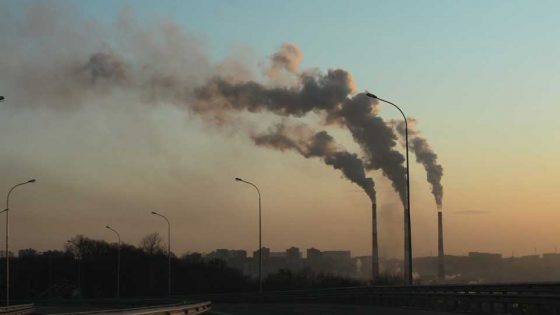The Committee on Climate Change (CCC) says the Government must act fast to improve the quality of UK homes to reduce greenhouse gas emissions.
In its report ‘UK housing: Fit for the future?’ the CCC warns that the UK’s legally-binding climate change targets will not be met without the near-complete elimination of greenhouse gas emissions from UK buildings.
The report finds that emissions reductions from the UK’s 29 million homes have stalled, while energy use in homes – which accounts for 14% of total UK emissions – increased between 2016 and 2017.
Efforts to adapt the UK’s housing stock to the impacts of the changing climate are also lagging far behind what is needed to keep us safe and comfortable, even as these climate change risks grow.
Around 4.5 million homes overheat, even in cool summers; 1.8 million people live in areas at significant risk of flooding; and average UK water consumption is higher than in many other European countries. Cost-effective measures to adapt the UK housing stock are not being rolled-out at anywhere near the required level, the report found.
The CCC says technology and knowledge to create high quality, low-carbon and resilient homes exists, but current policies and standards are failing to drive either the scale or the pace of change needed.
Home insulation installations have stalled; key policies, like the ‘zero carbon homes’ scheme, have been weakened or withdrawn; policies to encourage property-level flood protection, water efficiency devices and window shading are weak or non-existent; UK building standards are inadequate, overly complex and not enforced; and local authorities, faced with insufficient resources, are largely failing to address the need for low-emission, climate change resilient homes.
The CCC identifies five priorities for Government action:
- Performance and compliance. The way new homes are built and existing homes retrofitted often falls short of stated design standards. This deceives householders and inflicts new costs in the future. Closing the ‘performance gap’ could save households in new homes between £70 and £260 in energy bills each year. In addition, widespread inspection and enforcement of building standards is needed, with stiffer penalties for non-compliance. The required further tightening of building standards will have little impact if these issues are left unresolved.
- Skills gap. The chopping and changing of UK Government policy has led to a skills gap in housing design, construction and in the installation of new technologies. Important steps in reducing emissions are being held back as a result. The UK Government should launch a nationwide training programme and use initiatives under the Industrial Strategy’s Construction Sector Deal to plug this gap; by investing in new support to train designers, builders and installers of low-carbon heating, and measures to improve energy and water-efficiency, ventilation, thermal comfort and property-level flood protection.
- Retrofitting existing homes. Ensuring existing homes are low-carbon and resilient to the changing climate is a major UK infrastructure priority, and must be supported as such by the Treasury. Homes should make use of low-carbon sources of heating such as heat pumps and heat networks. The uptake of energy efficiency measures, such as loft and wall insulation, must be accelerated. Upgrades and repairs to existing homes should include plans for shading and ventilation, measures to reduce indoor moisture, improved air quality and water efficiency and, in homes at risk of flooding, property-level flood protection.
- Building new homes. New homes should be built to be low-carbon, energy and water efficient, and climate resilient. The costs of building to tight specifications are not prohibitive, and getting the design right from the outset is far cheaper than retrofitting later. From 2025 at the latest, no new homes should be connected to the gas grid. They should be heated using low-carbon energy sources, have ultra-high levels of energy efficiency alongside appropriate ventilation, and be timber-framed where possible. New laws are needed to reduce overheating risks in new buildings, as well as greater focus on ambitious water efficiency, property-level flood protection, green spaces (for example, trees on streets, vegetation on roofs, sustainable drainage systems) and provision for pedestrians, cyclists, public transport users and electric vehicle owners.
- Finance and funding. There are urgent funding gaps which must be addressed, including secure UK Government funding for low-carbon sources of heating beyond 2021, and better resources for local authorities – particularly ‘building control’ departments. The UK Government must implement the Green Finance Taskforce recommendations around green mortgages, such as preferential rates for owners of energy-efficient and low-carbon homes and green loans to cover the upfront costs of home sustainability improvements. It should also look to widen the scope of these measures, for example including water efficiency, flood and heat resilience in ‘green building passports’, and resilience surveys – to flooding, for example – alongside energy ratings.
Householders can also make a big difference, even with small changes, the report shows. This includes setting boilers to the correct temperature, installing shading and increasing insulation, which helps to lower people’s energy bills and improve the comfort of our homes.
Baroness Brown, Chair of the CCC’s Adaptation Committee, said: “This report confirms what we have long-suspected: UK homes are largely unprepared for climate change. The Government now has an opportunity to act. There must be compliance with stated building designs and standards. We need housing with low-carbon sources of heating. And we must finally grasp the challenge of improving our poor levels of home energy efficiency. As the climate continues to change, our homes are becoming increasingly uncomfortable and unsafe. This will continue unless we take steps now to adapt them for higher temperatures, flooding and water scarcity. Our report shows that this work has barely begun.
“Major improvements in how we design, build and use our homes are needed to meet these challenges. We have highlighted the need for appropriate sources of finance and funding – and a national training programme to ensure we have the building and construction skills required in the UK. Climate change will not wait while we consider our options – the nationwide shift we need to make UK homes climate-ready must start today.”
Lord Deben, Chairman of the Committee on Climate Change, said: “Simply put, there is no way in which the UK can meet the legally-binding climate change targets that Parliament has determined unless we take the measures outlined in this report.”




